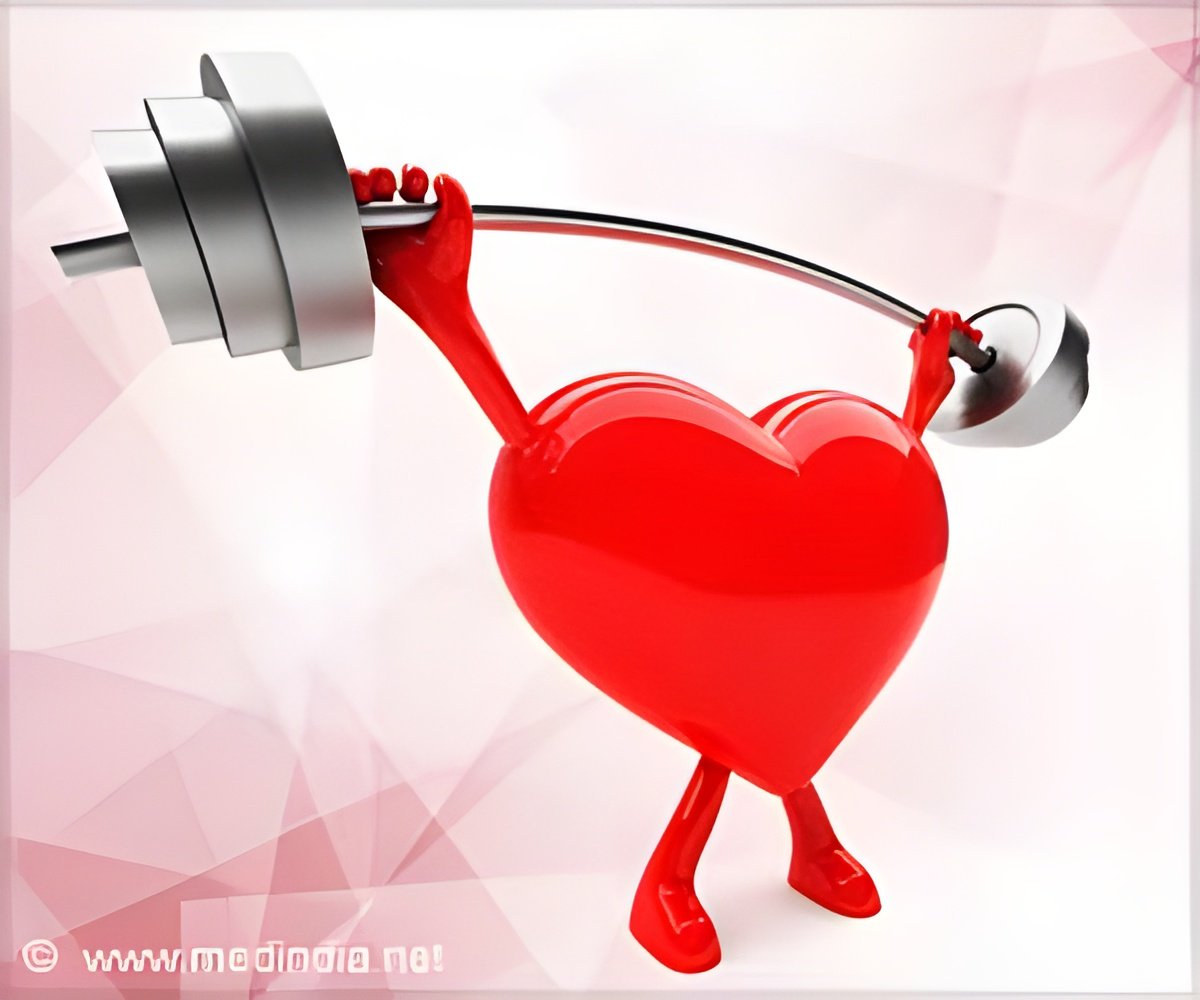Regular exercise and physical activity can make the heart younger and increase new heart cell formation which reduces heart failure risk.

‘Regular exercise may enhance the regenerative capacity of heart muscle cells and reduce the risk of heart failure.’





In a new study performed in mice, researchers from the Harvard Department of Stem Cell and Regenerative Biology (HSCRB), Massachusetts General Hospital (MGH) and Harvard Medical School (HMS), and the Harvard Stem Cell Institute (HSCI) uncovered one reason why exercise might be beneficial: it stimulates the heart to make new muscle cells, both under normal conditions and after a heart attack.The human heart has a relatively low capacity to regenerate itself. Young adults can renew around 1% of their heart muscle cells every year, and that rate decreases with age. Considering that losing heart cells is linked to heart failure, interventions that increase new heart cell formation have potential to prevent heart failure.
The two first authors on the study were Ana Vujic, Ph.D. of HSCRB, and Carolin Lerchenmüller, M.D. of MGH and HMS.
"We wanted to know whether there is a natural way to enhance the regenerative capacity of heart muscle cells," said Vujic. "So we decided to test the one intervention we already know to be safe and inexpensive: exercise."
A 5K race every day
Advertisement
To measure heart regeneration in the mice, the researchers administered a labeled chemical that was incorporated into newly made DNA as cells prepared to divide. By following the labeled DNA in the heart muscle, they could see where new cells were being produced.
Advertisement
The results were certainly significant -- but were they relevant? To find out, the researchers brought the experiment a little closer to home.
"We also wanted to test this in the disease setting of a heart attack, because our main interest is healing," said Vujic.
After experiencing a heart attack, mice with treadmill access still ran five kilometers a day, voluntarily. Compared to their sedentary counterparts, the exercising mice showed an increase in the area of heart tissue where new muscle cells were made.
The conclusion: in mice, exercise means regenerating heart tissue -- a lot.
"Make your heart younger"
The two senior authors behind the study were Richard Lee, M.D., Harvard Professor of Stem Cell and Regenerative Biology, and Principal Faculty member of HSCI, and Anthony Rosenzweig, M.D., Paul Dudley White Professor of Medicine at HMS, Chief of the Cardiology Division at MGH, and Principal Faculty member of HSCI.
"Maintaining a healthy heart requires balancing the loss of heart muscle cells due to injury or aging with the regeneration or birth of new heart muscle cells. Our study suggests exercise can help tip the balance in favor of regeneration," said Rosenzweig.
"Our study shows that you might be able to make your heart younger by exercising more every day," said Lee.
Diving deeper
It's all very well to say that exercise is good for the heart -- but how does that actually work? To find out, the researchers plan to pinpoint which biological mechanisms link exercise with increased regenerative activity in the heart.
In this study, the researchers identified a specific biological pathway that is required for exercise to turn on cardiac regeneration. "Now we need to find the signals that are sufficient to turn this pathway on," said Rosenzweig.
"If we can turn on these pathways at just the right time, in the right people, then we can improve recovery after a heart attack," said Lee.
Source-Eurekalert















